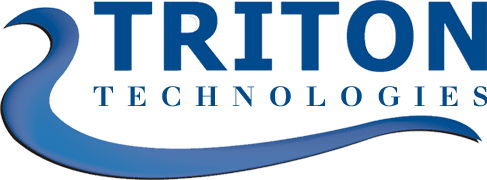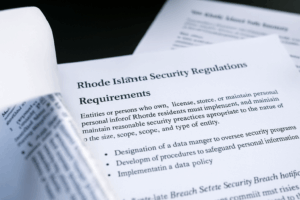Phishing attacks are a prevalent threat in today’s digital landscape, with cybercriminals continually developing sophisticated techniques to deceive individuals and organizations. These attacks can lead to significant financial losses, data breaches, and damage to your organization’s reputation. As phishing tactics evolve and become more convincing, it’s essential to stay ahead of these threats with a proactive approach. To safeguard your business from these malicious attempts, it is crucial to implement effective phishing prevention best practices. This comprehensive guide will provide you with actionable strategies on how to prevent phishing attacks in your organization and ensure robust protection for your sensitive data. By adopting these practices, you can fortify your defenses, minimize risk, and create a culture of security awareness that empowers your team to recognize and combat phishing threats effectively.
Understanding Phishing Attacks
Phishing is a cyber-attack method where attackers impersonate legitimate entities to trick individuals into divulging confidential information. These attacks often come in the form of deceptive emails, messages, or websites designed to appear authentic. The primary goal is to gain access to sensitive information such as login credentials, financial details, or personal data.
Key Phishing Prevention Best Practices
1. Employee Training and Awareness
One of the most effective ways to prevent phishing attacks is to educate your employees about the risks and signs of phishing. Implement regular training programs that cover:
Recognizing Phishing Attempts
Teach employees to identify common phishing indicators such as misspellings, unexpected attachments, or urgent requests for sensitive information.
Verifying Sources
Instruct employees to verify the authenticity of emails or messages before clicking on links or downloading attachments. Encourage them to contact the sender through a trusted channel if they have any doubts.
Handling Suspicious Communications
Provide guidelines on how to handle and report suspicious emails or messages. Create a clear protocol for reporting phishing attempts to your IT department or security team.
2. Implement Multi-Factor Authentication (MFA)
Multi-factor authentication adds an extra layer of security by requiring users to provide additional verification beyond just their password. MFA typically involves a second factor such as a text message code, an authentication app, or a biometric scan. By implementing MFA, even if a phishing attack successfully obtains a password, the additional authentication layer can prevent unauthorized access.
3. Use Email Filtering and Anti-Phishing Software
Deploy advanced email filtering solutions and anti-phishing software to help identify and block phishing attempts before they reach your employees’ inboxes. These tools use machine learning and other techniques to analyze incoming messages for suspicious characteristics and filter out potential threats. Ensure that your software is regularly updated to stay ahead of emerging phishing tactics.
Explore our Managed Service Offerings
Worcester’s Top Managed Service Provider
4. Regularly Update and Patch Systems
Outdated software and unpatched vulnerabilities can provide an entry point for cybercriminals. Regularly update all systems, applications, and software to the latest versions to address security flaws and minimize the risk of exploitation. This includes applying security patches and updates for your operating systems, browsers, and any third-party applications.
5. Establish Clear Security Policies
Develop and communicate clear security policies within your organization. These policies should include:
Password Management
Enforce strong password policies and regular password changes. Consider using a password manager to help employees create and maintain secure passwords.
Data Handling
Outline procedures for handling sensitive information and emphasize the importance of confidentiality.
Incident Response
Create an incident response plan detailing the steps to take in the event of a suspected phishing attack. Ensure that employees know how to report incidents and who to contact.
6. Monitor and Analyze Network Traffic
Implement network monitoring tools to detect unusual or suspicious activity. Regularly analyze network traffic for signs of phishing-related behavior, such as attempts to connect to known malicious domains or unexpected data transfers. Proactive monitoring can help identify potential threats before they escalate into more serious issues.
7. Conduct Regular Phishing Simulations
Phishing simulations are a valuable tool for testing your organization’s readiness and response to phishing attacks. Conduct simulated phishing campaigns to assess employee awareness and identify areas for improvement. Use the results to refine your training programs and strengthen your phishing prevention strategies.
8. Encourage Secure Communication Practices
Promote secure communication practices within your organization. For instance, encourage employees to use encrypted messaging platforms for sensitive communications and avoid discussing confidential information over unsecured channels. Establish guidelines for secure file sharing and discourage the use of personal email accounts for work-related matters.
9. Establish a Security Culture
Fostering a security-conscious culture within your organization is essential for effective phishing prevention. Encourage employees to prioritize security in their daily activities and make it a core aspect of your organizational values. Recognize and reward employees who demonstrate exceptional security practices and contribute to a safer digital environment.
10. Collaborate with Cybersecurity Experts
Partner with cybersecurity experts or managed service providers to enhance your phishing prevention efforts. These professionals can offer valuable insights, tools, and resources to help protect your organization from phishing attacks. Regularly consult with them to stay informed about the latest threats and best practices.
Discover our IT Solutions for Your Industry
Worcester’s Top Managed Service Provider
How Triton Technologies Can Help
At Triton Technologies, we specialize in providing tailored solutions to enhance your organization’s cybersecurity posture, including comprehensive managed services, compliance solutions, and industry-specific strategies. Here’s how our expertise can support your phishing prevention efforts:
Managed Services
Our managed services offer a proactive approach to cybersecurity, including:
24/7 Monitoring and Support
We provide continuous monitoring of your IT environment to detect and respond to potential phishing threats in real-time. Our team is available around the clock to address any security concerns and implement necessary measures.
Utilizing advanced technology, we detect and neutralize phishing attempts before they impact your organization. Our managed services include sophisticated email filtering and anti-phishing solutions.
Regular Security Assessments
We conduct periodic security assessments to identify vulnerabilities and recommend improvements. Our assessments help ensure that your phishing prevention measures remain effective and up-to-date.
Compliance Solutions
Navigating the complex landscape of regulatory requirements can be challenging. Our compliance solutions ensure that your organization meets industry standards and regulatory obligations, including:
Regulatory Guidance
We help you understand and implement compliance requirements related to cybersecurity and data protection. This includes adhering to regulations such as GDPR, HIPAA, and CCPA.
Policy Development
We assist in developing and maintaining security policies that align with regulatory standards and best practices. This includes policies related to password management, data handling, and incident response.
Audit Support
Our team provides support during compliance audits, ensuring that your phishing prevention practices and overall cybersecurity measures are thoroughly documented and aligned with regulatory expectations.
Industry-Specific Solutions
Understanding the unique needs of different industries is crucial for effective phishing prevention. Our industry-specific solutions are designed to address the specific challenges and requirements of your sector, including:
Training Programs
We offer customized training programs that address industry-specific phishing threats and best practices. Our training ensures that your employees are well-prepared to recognize and respond to phishing attempts.
Specialized Security Measures
We implement security solutions that are tailored to the unique risks and compliance requirements of your industry. This includes deploying advanced phishing prevention tools and technologies relevant to your sector.
Risk Management
Our industry experts provide risk management services to help you identify and mitigate potential phishing threats specific to your field. We offer guidance on best practices and strategies to enhance your overall security posture.
Phishing attacks remain a significant threat to organizations of all sizes, but by implementing these phishing prevention best practices, you can significantly reduce the risk and impact of such attacks. Educating your employees, deploying advanced security measures, and fostering a culture of security awareness are key components of an effective phishing prevention strategy.
At Triton Technologies, we are committed to helping you safeguard your organization from phishing and other cybersecurity threats. With our managed services, compliance solutions, and industry-specific expertise, we provide comprehensive support to enhance your phishing prevention efforts and ensure robust protection for your sensitive data.
Is your organization prepared to combat phishing threats? Review and enhance your phishing prevention practices today. For expert guidance and support tailored to your specific needs, contact Triton Technologies and safeguard your business from phishing attacks.
Discover Our Compliance Management Solutions
Worcester’s Leading Provider of Compliance Services



